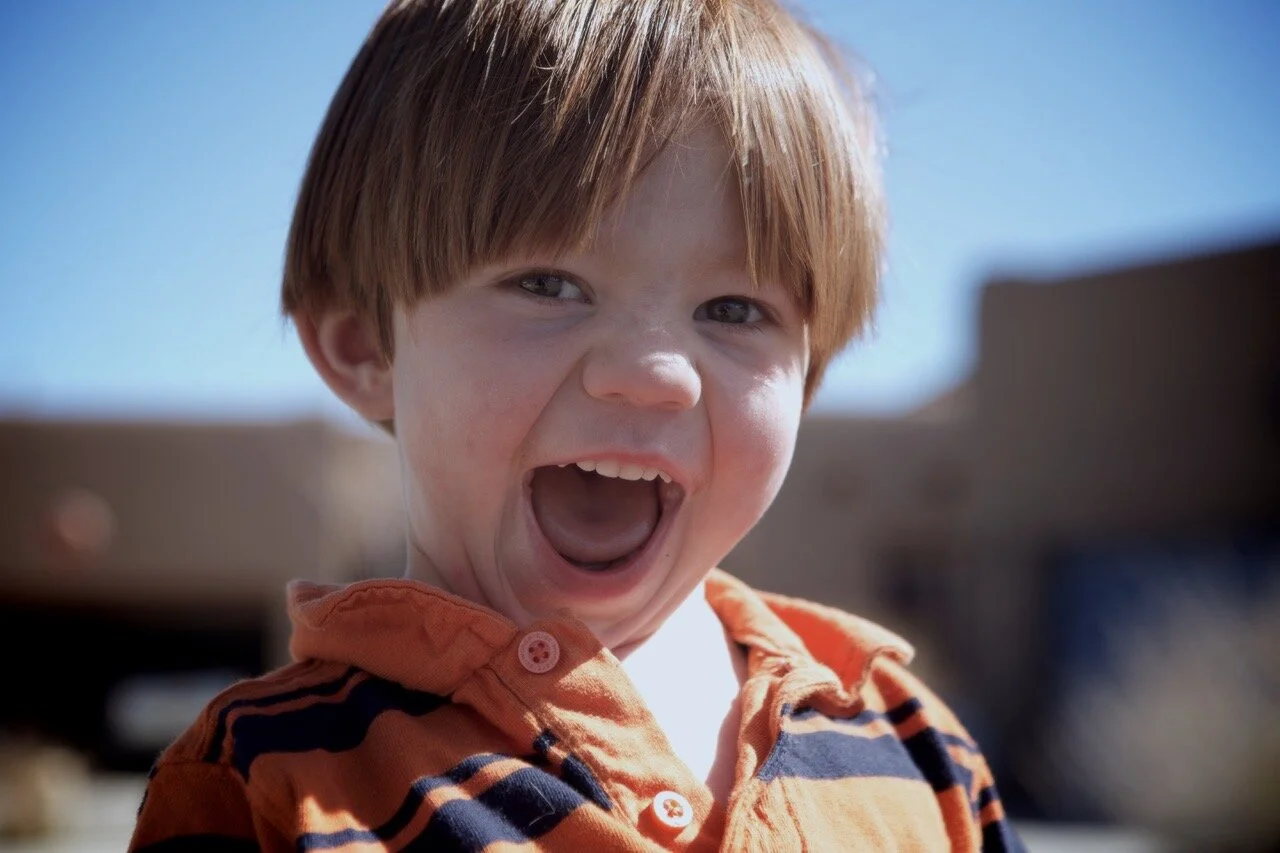Anatomy of A Special Education Case...
What happens in a due process hearing? To answer your questions about due process hearings and special education cases, we [Wrights Law] wrote Anatomy of a Special Education Case. This article tells the story of Stefan Jaynes, a young child with autism. As you read this article, you will learn how Stefan's case unfolded, from the due process hearing to the final decision from the U.S. Court of Appeals for the Fourth Circuit. Anatomy of a Special Education Case includes links to all decisions in Stefan's case (due process, review, federal court, court of appeals) and the complaint filed in federal court by Pete Wright, the attorney who represented Stefan.
Background of the Case Stefan Jaynes was diagnosed with autism soon after his second birthday. Stefan's pediatric neurologist advised his parents to get early intervention services through their local school district. But when Brian and Julianna Jaynes went to the school and requested early intervention services for Stefan, they ran into a wall of resistance.
Eventually, the school developed an IEP for Stefan – but they did not involve the parents in the IEP process. After developing this IEP, the school district failed to implement the IEP for several months. During these months, the parents continued to request services for Stefan. These delays had tragic consequences for Stefan.
Although Stefan had autism and needed intensive early intervention services, the school district placed him in a typical preschool program for about 12 hours a week. Because this program was not designed to meet Stefan’s unique needs as a child with autism, the child regressed. When the parents realized that Stefan was regressing, they withdrew him from the preschool program and began an intensive home-based ABA/Lovaas program.
In this home-based ABA program, trained tutors worked one-on-one with Stefan for several hours a day. Later, the parents learned that they had a right to a due process hearing. Due Process Hearing After Brian and Julianna retained Pete Wright, they requested a due process hearing to resolve issues about their son's special education. Their due process hearing was held on December 9 and December 10, 1998.
On June 11, 1999, the Hearing Officer issued a decision in favor of Stefan and his parents. He awarded the parents $117,979.78 to reimburse them for the cost of their son's ABA program. The Hearing Officer found that Stefan was damaged by the acts and omissions of the public school staff: "The mishandling of this case by Newport News Public Schools is inexcusable and tragic." Read the Hearing Officer’s decision at: http://www.wrightslaw.com/virginia/jaynes_newportnews_dp.pdf (File size: 682kb)
When you read the Hearing Officer's Findings of Fact and Conclusions of Law, you will learn about tuition reimbursement, legal requirements for the continuum of alternative placements, the requirement to involve the child's parents in the IEP process, appropriate IEP goals and objectives, “loss of educational opportunity,” and damages.
The next chapter began when the State Review Officer affirmed the Hearing Officer's decision -- but reduced the award of reimbursement by half. The State Review Officer found it "obvious" that school personnel "predetermined that Stefan be placed in a self-contained classroom and receive the PEEP program." He found that the preschool program was "little more than a nursery school" and that the school personnel showed "woeful disregard" of Stefan's needs as a child with autism. The Review Officer also found that the school's IEP was deficient and that the school made no attempt to involve Stefan's parents in developing his IEP.
Why did the Review Officer reduce the award? You will have to read the Review Officer's decision to find out. http://www.wrightslaw.com/virginia/jaynes_newportnews_review.pdf (File: 290 kb)
School District Appeals to Federal Court On December 6, 1999, the case was appealed to U. S. District Court. You can read the Complaint filed in Stefan's case: http://www.wrightslaw.com/virginia/jaynes_newportnews_complaint.pdf (File size: 30 kb) Judge Awards Parents $103,000 On September 7, 2000, U. S. District Court Judge Henry Coke Morgan, Jr. issued a favorable decision in Stefan’s case and awarded the parents $103,000. He found that the Newport News IEPs contained many deficiencies and that the district unilaterally “eliminated numerous programs from the IEP [and] provided no explanation or justification for striking these programs.” He discussed the importance of procedural safeguards. He found that the district failed to notify the parents of their rights including the right to a due process hearing. He discussed the need for “meaningful parental participation in the formulation and implementation of the IEP . . .” He ordered the school district to reimburse Stefan’s parents for his educational expenses from July 1, 1995 to the present. Judge Morgan's decision is at: http://www.wrightslaw.com/law/caselaw/VA_jaynes_newportnews_00_0907.pdf
School District Appeals to Fourth Circuit Newport News appealed Judge Morgan's decision to the United States Court of Appeals for the Fourth Circuit. Oral argument in Jaynes v. Newport News was heard on June 7, 2001. On July 10 2001, the U. S. Court of Appeals for the Fourth Circuit issued a favorable decision in Stefan's case. The school district decided not to appeal the case to the U. S. Supreme Court. Update on Stefan For an update on Stefan and ABA therapy, read Autism Therapy Called Effective, But Rare by Laurie Tarkan (New York Times, October 22, 2002).
This article describes the problems many parents face in getting appropriate services for their young children with autism, including the failure to use effective educational methods. "A vast majority of children with autism are not getting the intensive early intervention that experts say is both essential and effective." Read article About Pete Wright Pete Wright represented Stefan Jaynes in this case.
Pete also represented Shannon Carter before the U. S. Court of Appeals for the Fourth Circuit and the U. S. Supreme Court in Florence County School District Four v. Shannon Carter, and received a unanimous decision in Shannon’s favor. Pete also represented Danny Lawyer in Lawyer v. Chesterfield Sch. Bd., Joe James in James v. Upper Arlington Sch. Bd, and James Brody in Brody v. Dare County Sch. Bd. Pete and Pam Wright are co-authors of the best-selling law book, Wrightslaw: Special Education Law and the parent advocacy book, Wrightslaw: From Emotions to Advocacy (both books published by Harbor House Law Press) - See more at: http://www.wrightslaw.com/advoc/articles/anatomy_case_jaynes.htm#sthash.VMeWAkc8.dpuf












